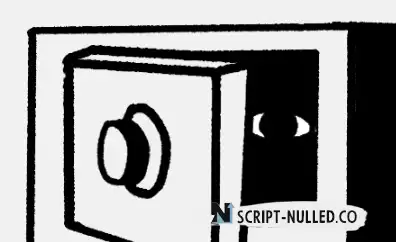My cryptocurrency was stolen. What to do?
13-02-2024, 09:42
How to safely store cryptocurrency? Cryptocurrencies and their Features

The issue of safe storage of cryptocurrency is no less relevant than its purchase. There are several types of wallets that have their own tasks and principle of operation
Like cash stored in a wallet, digital assets are held in a crypto wallet. This is a program designed to send and receive digital currencies, control their balance and interact with various blockchains.
The crypto wallet also stores private and public keys. The public key is the address (account) to which digital money is sent, and it is seen by other users. The private key is used for a digital signature, without which it is impossible to make a transfer. Having a wallet is necessary to manage your crypto assets and ensure their security.
Hot and cold wallets
There are many cryptocurrency wallets, but the essential difference between them is whether they are "hot" or "cold":
The hot wallet is connected to the Internet and is available at any time;
The cold wallet is not connected to the Internet and allows you to store funds offline. Such a wallet is also capable of receiving funds at any time, but only the owner can use them.
The hot ones include all cloud-based online wallets, most mobile and software wallets, as well as wallets on the exchange.
Cold wallets are hardware wallets, paper wallets (a QR code and address printed on paper, as well as a private key that allow you to hold cryptocurrency and transfer it), USB drives and similar data storage devices.
A hardware wallet is considered the safest option for storing digital assets. Hardware wallets store private keys on an external device, like a USB. Some hardware wallets are compatible with web interfaces and support multiple currencies, which allows you not only to store cryptocurrency, but also to make online payments.
Among the disadvantages, their cost starts at $79, as well as the risk of loss or theft of the wallet.
The most common wallets are from the Ledger manufacturer. But there are also analogues in the form of Trezor and KeepKey. It is important to purchase a hardware wallet directly from the manufacturer. Buying elsewhere is unsafe due to the risk of internal wallet changes that could lead to asset theft.
Custodial and non-custodial
Depending on the availability of a custodian (a third party) who is responsible for storing personal data, wallets are divided into custodial and non-custodial.
A custodial wallet is a wallet in which personal data is stored by a third party (custodian). This has its advantages. For example, after losing passwords or keys, the user will be able to restore access to their funds.
Many crypto exchanges (Coinbase, Binance, etc.) and brokerage services have custodial wallets. Such integration makes it easier to work with other tools of these platforms, and it can be beneficial when making transactions (for example, due to the absence of commissions within the ecosystem).
Due to the control of keys by third parties, it is important to approach the choice of a custodial wallet with particular caution, since the custodian's access to the wallet is also a disadvantage. The user may lose access to the wallet and funds by decision of the authorities or the court, as well as as a result of a hacker attack.
A striking example of this was the theft of user funds by employees of the Thodex cryptocurrency exchange in the amount of $2 billion in 2021. And in 2022, the American Coinbase announced the blocking of wallets associated with Russian citizens and companies from the American sanctions lists.
Custodial wallets are the best option for speculative trading, as exchanges provide additional financial services. For example, p2p, interest-bearing deposits, futures, launchpuls (platforms that allow you to earn new tokens), etc.
A non-custodial wallet provides the user with full control over keys and funds. Such wallets are created by decentralized exchanges and special services — for example, ZenGo and Nuri wallets. Also, non-modal wallets can be created in special browser extensions (MetaMask). Such extensions provide an address and a private key after a simple registration procedure. A hardware wallet is also considered non-custodial.
Such wallets are suitable for long-term investments and asset storage, as they provide a high level of asset security.
However, non-custodial cryptocurrencies also have disadvantages. If you lose your private key and the phrase to restore it, the funds will be irretrievably lost. Such wallets may also suffer due to a hacker attack.
Another type of non—custodial wallets is paper ones. They are not so popular due to their impracticality. Such a wallet is a simple piece of paper on which public and private keys are printed. If desired, QR codes for both keys can be placed on it.
To receive funds to such a wallet, you need to transfer a public key to the sender as standard. And to send cryptocurrency, you need to enter a private key in a software wallet and create a transaction. Both of these actions are simplified by using QR codes.
13-02-2024, 09:42
30-12-2022, 16:09
19-02-2022, 11:39


There are no comments
Information
Users of Visitor are not allowed to comment this publication.